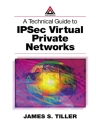Regulatory compliance has historically been a concern of only a company’s legal and finance departments. However, as e-commerce continues to dominate retail both in the United States and abroad, regulatory compliance is now a major area of concern for IT managers, everyone on executive teams, and entire boards of directors.
Amid a recoiling global marketplace and bigger and more costly cyberattacks, the nexus of “what can our networks do” versus “what are our networks allowed to do” is ever more complex. New privacy regulations coming from some of the closest allies of the United States are increasing the need for all companies doing business online to understand and abide by regulations that are in constant flux.
On top of these concerns, the U.S. government itself is in a rocky place with domestic politics threatening to stand in the way of business as usual for American companies. How will CEOs navigate this minefield centered around Internet freedom? It will require boardrooms and network managers to focus in partnership on meeting new privacy mandates while also keeping networks safe from cyberattacks and data theft.
Table of Content
Introduction
1 The Business Cost of Internet Freedom
2 Breaking Down the Trans-Pacific Partnership (TPP)
3 New Regulations Governing Global Internet Business
4 Are New Internet Regulations Helping or Hurting Business?
5 The Cost of Protectionism on Global E-Commerce
6 Business Abroad in a Changing IT Regulatory Environment
7 Third-Party Versus In-House IT Compliance Management
8 Meeting IT Regulatory Obligations
9 Is a Uniform Global IT Strategy Possible?
Notes
Glossary
Acknowledgments
Index
About the author
Craig Mac Kinder is an innovative and transformative IT executive with experience spanning more than two decades. His IT leadership experience encompasses business administration, personnel management, and operations management as they relate to technology. He provides IT management consulting for government agencies, privately held corporations, publicly traded companies, and individuals.












